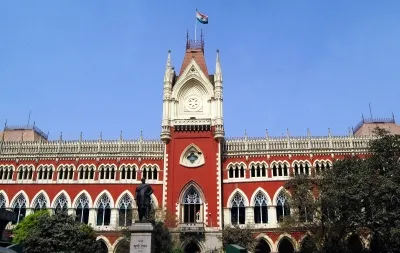Why Did the Bengal Government and WBSSC Challenge the HC Order Excluding 'Tainted' Candidates?

Synopsis
Key Takeaways
- West Bengal government and WBSSC challenge Calcutta High Court ruling.
- Exclusion of 'tainted' candidates from recruitment process under scrutiny.
- New weightage criteria may disadvantage fresh candidates.
- Legal implications could reshape hiring practices in education.
- Fairness and transparency in recruitment remain vital.
Kolkata, July 8 (NationPress) The government of West Bengal and the West Bengal School Service Commission (WBSSC) have both filed separate appeals against the ruling from the single-judge bench of the Calcutta High Court. This ruling mandates that candidates already labeled as 'tainted' be excluded from the new recruitment process aimed at filling vacant teaching positions in state-run schools, a move prompted by a Supreme Court decision that annulled 25,753 jobs in April this year.
On Monday, Justice Saugata Bhattacharya, presiding over the single-judge bench, stated that any candidate recognized as 'tainted' should not participate in the new selection process. Furthermore, any applications submitted by these individuals for the current recruitment should be immediately rejected.
Despite this, the bench did not address the concerns raised by petitioners regarding new weightage criteria introduced in the recent recruitment notification, which awards 10 marks each for 'prior teaching experience' and 'lecture demonstration'.
The petitioners argued that the process for the new recruitment should mirror the one from 2016, the results of which were nullified by the Supreme Court in April. They contended that since the earlier recruitment was deemed illegal, it is unjust for previously employed teachers to benefit from the new criteria of 'prior teaching experience' and 'lecture demonstration'.
They maintained that the new recruitment process should ensure a fair competition for all eligible candidates and expressed concerns that these new criteria would disadvantage fresh applicants.
In contrast, the state government and WBSSC have approached the high court to contest the segment of the single-judge bench's ruling that insists on the exclusion of the identified 'tainted' candidates.
As a result, the single-judge bench's order has faced two separate challenges on different grounds.
Both petitions against the single-judge bench ruling were filed before the division bench comprising Justice Soumen Sen and Justice Smita Das, and both have been admitted for consideration.









